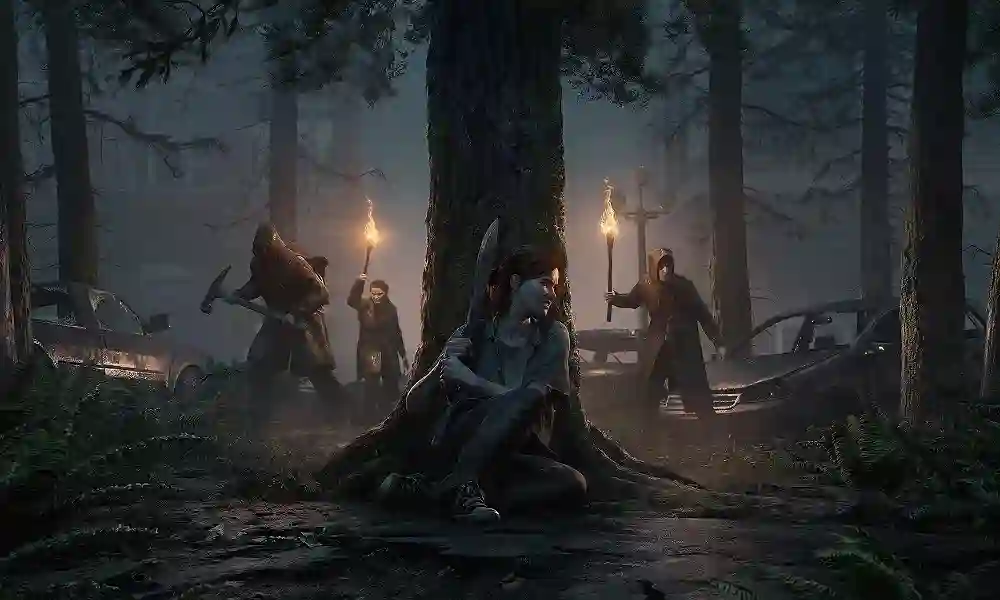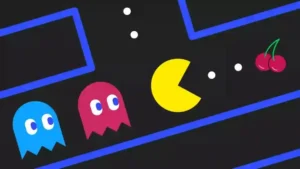The Role of Storytelling in Today’s Best Video Games

Okay, let’s set the scene: you’re on your couch, controller in hand. You boot up a game, and within minutes, you’re not just playing it. You’re in it. The characters? Real. The stakes? High. And suddenly, you’re emotionally invested in whether or not some random NPC gets to see the sunrise tomorrow. I’m not the only one, right? Storytelling in video games has come a long way from those awkward early days of pixelated blocky characters and “You’ve got to rescue Princess Peach again.” And I’ve got to say, thank goodness for that. Storytelling is no longer just a side note in games. It’s often the heart of the experience.
The Evolution of Video Game Storytelling
Back in the day, I remember thinking I was hot stuff after saving Princess Toadstool from Bowser’s clutches. My character? A square-shaped plumber. My mission? To jump. A lot. Now? Well, fast forward a few decades, and I’ve cried more times in The Last of Us than I care to admit.
So, how did we get here? In the 80s and early 90s, storytelling in games was more about a few words on the screen and not much else. Think Zork—all text, no graphics, and you’d have to build the entire story in your mind. That’s where the imagination came in—making it all feel alive. But that’s ancient history now. With The Witcher 3, Red Dead Redemption 2, and God of War showing us what’s possible, it’s like we went from a silent film to Avengers: Endgame in no time flat. And yes, I mean that in a good way.
Why Storytelling is What Keeps You Playing
I don’t know about you, but there’s nothing more addictive than a good story. Like, I was ready to walk away from Mass Effect after the first couple hours—then came that pivotal moment where your choices shape the fate of the galaxy. I’m talking about the kind of moment that makes you go, “Wait, this is my decision?” Yeah, that kind of weighty, soul-crushing choice. Let me tell you: I didn’t sleep for days after that.
So what’s the magic behind it? Why does a good story in a game hit so much harder than most Netflix shows? Here’s the breakdown:
- Characters You Care About: When you get emotionally attached to a character in a video game, it’s not like a movie where you can just close your eyes and let the plot wash over you. In The Last of Us, I swear I almost felt like Joel was a distant relative by the end of it. He wasn’t just some guy fighting to survive; he was someone I knew, someone I understood. Then there’s Geralt from The Witcher 3—you get him, his struggles, and his moral grayness. It’s like hanging out with a friend who’s rough around the edges but always there when you need ‘em.
- Choices That Matter: You know that feeling when you make a choice in a game and immediately wish you could hit the undo button? Yeah, Mass Effect—again. Every single choice feels like a gamble, and no matter how many times you replay it, there’s always that lingering “what if?” It’s those dilemmas that make the story feel real. Do I save this one person or let an entire city perish? And then you can spend hours replaying, thinking, Could I have done it differently?
- Worlds that Suck You In: I’m talking Skyrim levels of immersion. I can’t tell you how many hours I’ve spent just exploring every nook and cranny of the map. And I’m not even ashamed of it. The game’s world doesn’t just feel like a place—it feels like a living, breathing character. From the random dragon attacks to the local gossip in taverns, everything about it screams lived-in.
Writing Interactive Narratives—The Struggle is Real
And here’s the kicker: creating a game with great storytelling isn’t easy. I learned that the hard way. Back in college, I tried to make my own game. A glorious mess. You’d think writing a story that’s interactive—where players make choices—would be fun, right? Nope. It’s like trying to juggle chainsaws while riding a unicycle.
- Non-linear Storytelling: Non-linear storytelling is where most game devs hit a wall. See, games like The Witcher 3 let you do whatever the heck you want. But how do you make sure the story still works if someone spends hours on side quests instead of the main storyline? Yeah. Not easy. These games give you the freedom to explore, but they also need to stay focused enough so that the main plot doesn’t get completely lost in the shuffle. Somehow, they pull it off.
- Branching Dialogue: Here’s the fun part. You get to pick your character’s responses. It’s like being a human version of Google Translate—except with consequences. You choose to be a jerk? Well, don’t be surprised if that comes back to bite you. You’re nice? Prepare for your heart to break later. That’s the beauty of dialogue trees in games like Mass Effect and Detroit: Become Human. Every conversation has weight, and I’m not talking about your basic “small talk” either.
- Gameplay + Story = Match Made in Heaven: Ever played Journey? It’s a beautiful, story-less masterpiece. It’s not even a game where you read the story—it’s all told through the environment, the music, and the emotional buildup. It’s an experience. And that’s where the magic happens. The best games? They don’t just have storylines inserted between the action—they are the action. The two are intertwined, inseparable.
Video Games as Emotional Rollercoasters
Look, we’ve all gotten emotionally invested in something fictional, but video games hit differently. I’ll never forget the gut punch of watching Arthur Morgan’s final moments in Red Dead Redemption 2. For a video game character, I was genuinely grieving. My brain could not wrap around the fact that a pixelated cowboy had me in tears. But there I was, sobbing uncontrollably. Yeah, that happened.
The Soundtrack: Making You Feel the Feels
Music can make or break a game’s atmosphere. I’ll never forget hearing that haunting guitar from The Last of Us—that soundtrack haunts me. Every time I hear the guitar riff, I remember walking through post-apocalyptic ruins with Joel and Ellie, and suddenly, I’m back there. The music connects the dots. It feels like part of the story, just like the visuals and the characters do.
Relationships in Video Games: More Than Just NPCs
We’ve all seen those side characters that are basically there to give you a quest and say goodbye. But then there are those characters you build relationships with—like in Persona 5 or Dragon Age. In Persona 5, I spent way too many hours bonding with my crew, just to watch their stories unfold. It’s like making new friends who you actually care about. Sure, I get to save the world—but also, I don’t want to miss out on catching up with my buddies.
Multiplayer Games and Storytelling
Now, let’s get real for a sec. Multiplayer games aren’t just about shooting people or building stuff. Some of them are packed with their own type of storytelling. Ever play Fortnite? Yeah, it’s a battle royale, but every season? Something crazy happens. It’s like a live-action episode of The Twilight Zone, and you’re in the middle of it. Plus, there’s the lore behind the skins, the events—stuff you wouldn’t expect from a game where you just build stuff and kill other players.
- Live Events: Fortnite has live events that are straight-up mind-blowing. Forget cutscenes—these events happen right now, with you in the middle of it. The game morphs in real-time, and you’re part of an unfolding story. I’ve seen a rocket shoot into the sky and a giant robot fight a kaiju, and it was nothing short of cinematic magic. These things pull you in like you’re watching a show, but you’re the star.
- Player-Created Lore: Then you’ve got games like Minecraft and World of Warcraft, where the players themselves write the stories. My friend Greg’s WoW character has a whole saga, complete with betrayals and epic battles, and he won’t let anyone forget it. It’s like being part of your own Lord of the Rings trilogy—except with more raiding and fewer elves.
Wrapping It Up—Or Not
Look, storytelling in games is not just a feature anymore—it’s the thing that makes them memorable. From decisions that make you second-guess your own morals to characters that you actually care about, it’s clear that storytelling is what makes the best games stick with you. And if you’ve ever stayed up all night wondering what would’ve happened if you made a different choice, well, you’re not alone. The lines between story and gameplay are becoming increasingly blurred, and I, for one, am here for it.
Oh, and if you’ve ever spent hours





